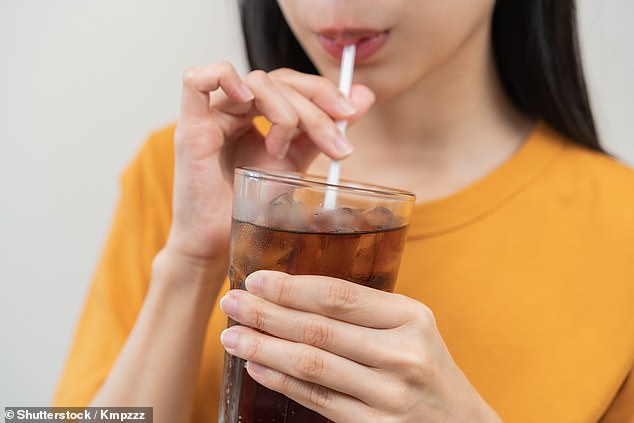Biohacker Bryan Johnson has revealed whether drinking wine or coffee is more likely to make you live longer.
The 48-year-old, who claims to be more than a decade younger biologically than his actual age, posed a question on Instagram: if you’re at a party and have a choice between Diet Coke and a glass of wine, which is healthier?
Comparing the beverages, Johnson looked at the artificial sweeteners in Diet Coke and alcohol content in a bottle of red wine.
Diet Coke has no calories or sugars and is instead sweetened with the artificial sugar aspartame. Also found in sugar-free chewing gum and diet dairy products, aspartame is about 200 times sweeter than sugar and has been shrouded in controversy over claims it may increase the risk of diabetes, behavioral issues and cancer.
A five-ounce glass of wine, meanwhile, contains anywhere from five to 25 percent alcohol by volume (ABV).
Health experts and agencies are divided on how much alcohol is safe to consume. Current Dietary Guidelines for Americans suggest limiting consumption to one drink daily for women and two for men, but sources close the Trump administration have suggested those limits could be changed to more general ‘moderation’ recommendations.
Some studies have also suggested even moderate drinking could raise the risk of conditions like dementia and cancer.
Comparing the two, Johnson concluded: ‘If I’m at a party and the choice is Diet Coke or alcohol, I’m going to choose dehydration.’

Biohacker Bryan Johnson, 48, has revealed whether he thinks soda or wine is better for health and longevity
Johnson claimed aspartame ‘may disrupt your [gut] microbiome,’ while a can of Diet Coke ‘may also increase the risk of type 2 diabetes, heart disease and stroke.’
One 2023 study from Cedars Sinai Medical Center in Los Angeles examined colon samples from a small group of adults and found that artificial sweeteners ‘significantly’ altered the microbiome of the small intestine, though the team noted more research on the exact effects is still needed.
Animal studies of aspartame suggest it may also be linked to impaired glucose metabolism, a precursor to diabetes.
Additionally, a 2022 study from the University of California, Irvine, found that people who consumed ‘significant’ amounts of artificial sweeteners had an 18 percent higher risk of stroke and a nine percent greater chance of developing heart disease.
It’s thought that aspartame may cause spikes in insulin that lead to inflammation and plaque buildup in the arteries, though most research has been done in animals.
As for wine, Johnson also claimed that one drink per day ‘can increase the risk for several cancers.’
Alcohol is defined by the International Agency for Research on Cancer (IARC) as a group 1 carcinogen, meaning it has been shown to cause cancer in humans.

Diet Coke has long been demonized for containing aspartame, which is linked to cancer in animals. However, data on humans is lacking (stock image)

Red wine contains antioxidants called polyphenols, but recent studies suggest even moderate drinking can raise cancer risk (stock image)
Heavy consumption has consistently been linked to an increased risk of liver, colorectal, stomach, head and neck, breast and lung cancers, as it breaks down into a substance called acetaldehyde, which damages DNA and makes it more prone to cancer-causing mutations.
Even moderate drinking, such as one to two drinks per day, may increase cancer risk. A review published this year by the National Academies of Sciences, Engineering and Medicine (NASEM) found that moderate drinking was linked to a 10 percent increased risk of breast cancer compared to non-drinkers.
The World Health Organization also believes that no amount of alcohol consumption is safe.
A class of wine also averages about 125 calories, while Diet Coke has zero.
Red wine, however, also contains antioxidants called polyphenols, which help lower inflammation and improve blood vessel function, lowering blood pressure and reducing the risk of blood clots.
